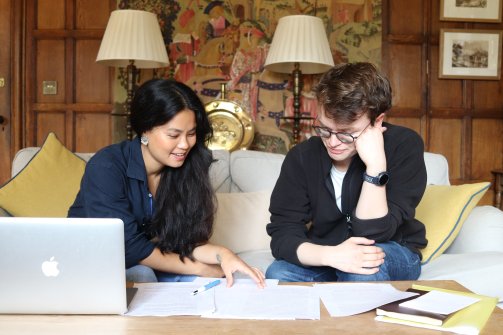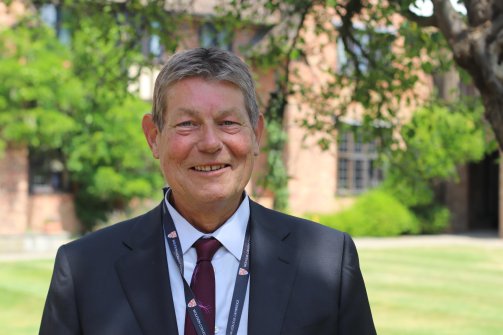New Press Fellows arrive at Wolfson

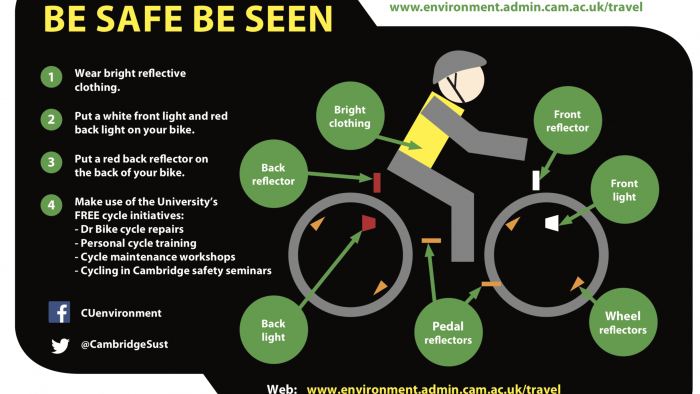
The best way to get around Cambridge is by bicycle. Not only is it usually the fastest way to get from one place to another, it's also good for you and good for the environment.
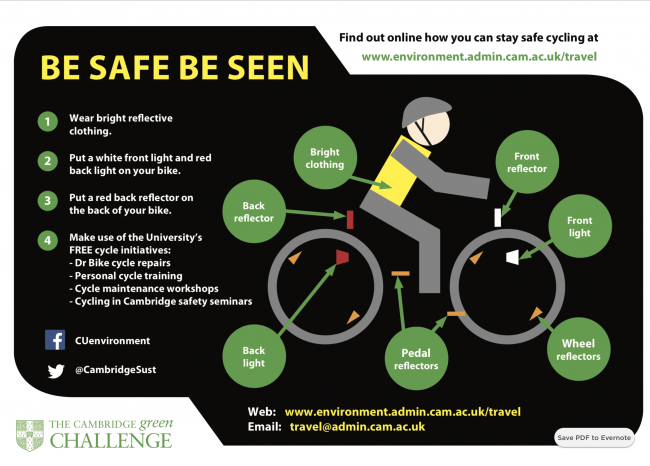
All bicycles must be marked with a College registration number assigned at the Porters' Lodge. Racks are provided around the perimeter of the College and bicycles left there should always be locked. There is a designated area outside the front gate for visitors to park their bicycles and one of the bicycle sheds is reserved for staff bicycles. Students are asked not to park their bicycles in these spaces. If you do, you may find your bicycle is removed.
For safety reasons bicycles are not allowed in the Front, East or West Courts, and must not be ridden or left in any of the other courts.
Please do not bring your bicycle into any of the buildings, including your bedroom.
Know the law. The Highway Code is available in the College library and online.
Take a practical training session. The University is offering free group and 1-to-1 Cycle Skills sessions for students.
Go on green. Do not cycle through red traffic lights.
Keep to your lane. Do not cycle on the pavement, unless it is a cycle path.
Stay sober. Do not cycle on the road if you are drunk. You could be subject to a £1000 fine.
Light up. You must have lights on your bicycle when cycling at night and in low visibility conditions. Fortunately WCSA and the College have partnered to provide inexpensive cycling lights to students (see below).
Stay aware. Be aware of your surroundings, watch the road for uneven surfaces, pot holes and other hazards.
Share the road. Look out — and listen — for other traffic, particularly buses and large vehicles. Look out for tourists and other pedestrians walking into the road without looking.
Stand out. It is recommended the cyclists wear high-viz reflective clothing to make sure you can be seen by other road-users. Bike stores stock a range of clothing and accessories:
Help your head. Cycle helmets are not compulsory in the UK, but can offer added protected in the event of a fall. There are many different styles, designs and price ranges. You should be able to purchase a decent helmet for around £30 - £45. Or look out for innovative technology like this neck-worn airbag-helmet by Swedish start-up Hovding.
Be bright. It is a legal requirement that you must have lights on your bike when cycling after dark. Winters in Cambridge are dark, with dusk setting in as early as 16.00. Even with street lighting it can be difficult for drivers to see cyclists. To comply with the law you need a red light at the rear of your bike and a white light at the front. The lights must be located between 35cm and 150cm from the ground.
Feeling foggy? It can be useful to use your lights in low visibility conditions (on foggy mornings) and also at the times of dawn and dusk when the sun is low and glare may prevent other road-users from seeing you.
There many bicycle shops in Cambridge where you can purchase both new and second-hand bicycles. Some other options are to purchase one from another student (they are often advertised on the WCSA Facebook pages) or to obtain one from the Owl charity, which renovates donated bicycles and sells them for charity.
Bike theft is the single most common crime affecting students in Cambridge. We recommend several security measures to protect your bike:
Fix it yourself. There is a sheltered bicycle repair area with tools and a tyre pump behind S block. The Porters have a limited range of tools and another wheel pump should these not be sufficient.
The University also has a number of bicycle repair areas around town.
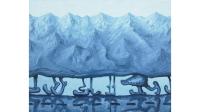
Visit Wolfson's latest exhibition 'After News Before Bed' featuring work by emerging artist Enej Gala, winner of the Wolfson Royal Academy Schools Graduate Prize.
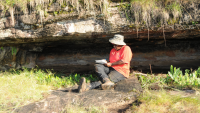
How does the interpretation of geometric rock art in Uganda shed light on the societal and cultural experiences of African Pygmy forest hunter-gatherers?

This event is the third of three roundtables that Wolfson's REACH Research Hub will be organising over the academic year under the heading ‘Hierarchies of Racism?’
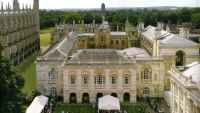
Join Emeritus Fellow Dr Brian D Cox for a talk which will outline the development of the University from its origins in 1209 until the present day.
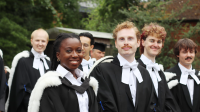
Graduation ceremonies are the culmination of students’ hard work and commitment, and a moment to celebrate the completion of their Cambridge degree.






